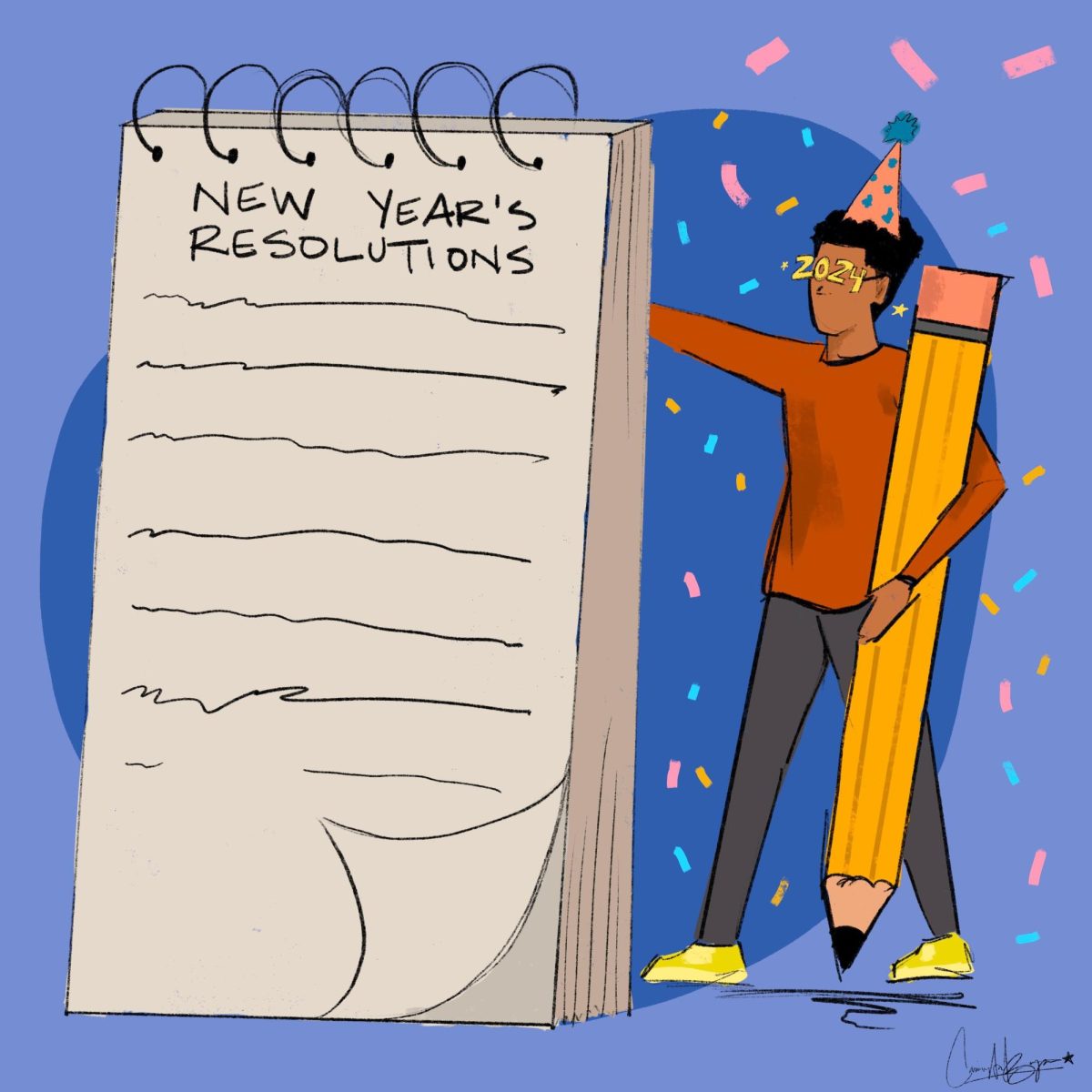Your New Year’s resolution is probably going to fail.
No, really. 88% of people who set resolutions fail them in the first two weeks, and only about 1% of these resolutions last 11 or 12 months. This failure is usually brought on by setting goals that are too ambitious or too vague, but at the end of the day, it’s just not always possible to perfectly fulfill a goal over the course of a year. We’re people, hence, we’re imperfect.
Because of this possible failure, I hear lots of voices discouraging others from setting resolutions or packaging resolutions under a different name. A resolution, by definition, is the decision to do something, so all the goal word clouds and hopeful bingo boards are still resolutions, just a little gentler. You’re resolving to work toward a certain goal in the coming year.
So why the villainization of a resolution? The phrase has practically become synonymous with getting a gym membership, pulling your hamstring by Jan. 7, then never going back and hating yourself for it.
It’s that final part that can make resolutions a harmful tradition — the hating. We’re all prone to feeling awful the second we don’t finish a book every week. It seems like proof we should’ve never tried to read in the first place, and then suddenly we’re set even further back than where we started.
Perhaps the most important strategy to fulfill your resolution is to avoid vagueness. If you just say “read more,” you’ve basically set an impossible goal because there’s no metric for success. No matter how much you read or don’t read, you’ll find a way to feel like you didn’t do as much as you could’ve. Plus, without structure to lead real action, you’ll just stagnate in the vague concept.
Keeping your goals realistic is another great way to delay the immediate failure. Instead of trying to read a book every week, try to read one book a month, or even every two months. It might seem overly easy, but that’s still six more books than if you get so upset in January that you don’t pick up another book all year. You can also set goals with a partner or friend, keeping each other accountable while having a fun new topic to chat about.
But even with all this strategy, there’s still a good chance that somewhere along the way, your resolution will fail. Life will get in the way, and you’ll suddenly realize you didn’t reach your goal. You skipped a couple of workouts, you overspent on a dress. Suddenly, all that progress feels lost. You’re back to wishing you never made that resolution at all.
But what if we could reframe this? People go through exposure therapy for a variety of phobias, and I’ve even been seeing TikToks about rejection therapy where people ask strangers for silly things just to get used to being told no. Why can’t failing our resolutions be the same? An opportunity to fall short of a goal without beating ourselves up, to see that failure is not a world-destroying event, but a temporary setback. No one’s stopping you from trying to get back on track even if you miss a month of reading.
Let’s get used to failure — let’s fail over and over and over until it’s not holding us back from trying anymore. I can’t even count all the projects I never started because I was convinced they’d be bad and friendships I lost because I didn’t want to risk not getting a text back. If we’ve already decided we’re going to fail, we’re never going to start.
If you resolve to try and eat at least two vegetables every day and then mess up halfway through February, you’ve still eaten way more vegetables than if you never set the resolution.
I think that if we lovingly open ourselves up to the possibility of failing, prepared to cradle rather than bash ourselves when we inevitably fall, we’ll find that new ventures seem a lot less scary. What started as a resolution to get outside more could become a shift in how you treat yourself, and in a year, you’ll realize all the new opportunities that this freedom has brought. Imagine the jobs you never applied to, or the cute coworker you never asked out, or that workout class you balked at taking. What if things could’ve been different?
Set the resolution. Best case scenario, you reach your goal. Worst case scenario, you’ve softened yourself to the human mistakes we all make and opened yourself up to all the beautiful opportunities that come with risks.
Brynn Murawski is trying to be kinder to herself this year. Reach out with your resolutions (or anything else) to [email protected]



